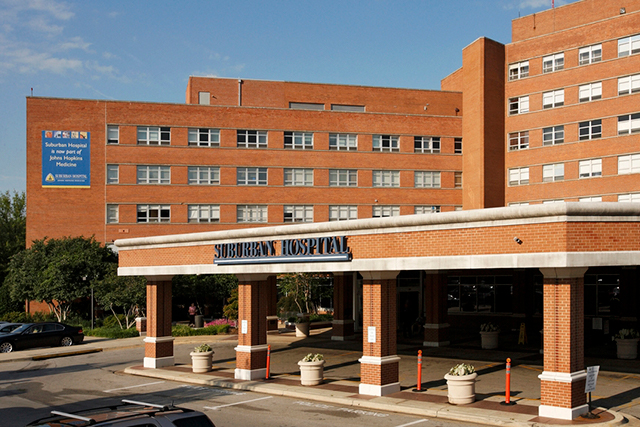Our Services

We specialize in treating conditions and diseases using minimally invasive catheter techniques. Transcatheter techniques involve guiding a narrow tube (catheter) into an area to repair it.
One example is balloon valvuloplasty, where the interventional cardiologist places a balloon at the end of the catheter and directs it to the damaged heart valve. Once it’s in position the balloon is inflated, which can temporarily widen the valve opening so that the valve works better.
Advantages We Offer Patients
- Our team has vast experience in performing transcatheter and open surgical heart valve replacements and repairs, with nearly 2,000 TAVR procedures since 2011.
- We continually improve on safety and effectiveness through studies of our transcatheter and surgical results.
- To ensure our treatments are at the forefront of new technology, our group participates in the most important clinical trials of new procedures and artificial valves.
Aortic Valve Disease
If the aortic valve in your heart is too narrow or doesn’t open completely, it can reduce the amount of oxygen-rich blood leaving your heart and slow its flow into the body.
Our team treats patients with aortic valve disease, as well as those who have developed problems from previous heart valve procedures.
Our team can address a damaged or diseased valve in several ways.
- Balloon aortic valvuloplasty.
- TAVR: Transcatheter aortic valve replacement. The interventional cardiologist and surgeon may use a catheter to replace the damaged aortic valve with an artificial one.
- Conventional surgical aortic valve replacement. The interventional cardiologist and surgeon may recommend conventional (“open”) surgery to replace the valve.
Mitral Valve Disease
For patients with disease or damage affecting the mitral valve, our team offers conventional (“open”) surgery and minimally invasive transcatheter mitral valve replacement and repair. We are also participating in the clinical trial of a new transcatheter mitral valve replacement system. For mitral valve disease, the team may recommend:
- Balloon mitral valvuloplasty.
- Transcatheter mitral valve repair (including a sophisticated mitral clip system).
- Transcatheter replacement of mitral valves or rings.
- Conventional surgical mitral valve replacement or repair.
Tricuspid Valve Disease
For patients with a leaky tricuspid valve, our team offers conventional (“open”) surgery. We are also participating in a clinical trial of a new transcatheter tricuspid valve repair system for patients with higher surgical risk.
Paravalvular Leak Closure
Occasionally, valves that are surgically implanted can develop leaking in the area next to but outside the valve. This is known as a paravalvular leak.
Surgery can close a paravalvular leak if it is causing problems. In certain situations, we can provide a minimally invasive alternative to open surgery by placing a small device to seal the leak.
Prevention of Stroke in Atrial Fibrillation
Most patients with atrial fibrillation have an increased risk of stroke, and many take a blood thinning medication to reduce that risk. Some patients with a condition such as frequent bleeding cannot take a blood thinner, and for them, we offer procedures that can lower stroke risk.
About 90% of strokes due to atrial fibrillation involve a clot forming in an area of the heart called the left atrial appendage. We can modify the left atrial appendage and reduce the risk of stroke using surgical or transcatheter procedures, including transcatheter implantation of a left atrial appendage closure device.
Atrial Septal Defects and Patent Foramen Ovale
The foramen ovale is a connection between the top two chambers of the heart (the left and right atria), which normally closes shortly after birth.
In about 25% of the U.S. population, this opening does not completely close. The result is a condition called patent foramen ovale, or PFO. For younger patients who suffer a stroke is thought to be due to a PFO, a transcatheter procedure can close the PFO and may prevent future strokes.
Larger defects (holes) in the atrial septum, called atrial septal defects (ASDs), can cause enlargement of the heart, elevated pressure in the lungs, and symptoms including shortness of breath and swelling of the ankles. We offer minimally invasive transcatheter ASD closures to many patients, and those not eligible for transcatheter closure are usually offered surgical closure.
Hypertrophic Cardiomyopathy
A condition called hypertrophic cardiomyopathy can cause an abnormal thickening of the heart muscle, which limits the heart’s ability to pump blood to the rest of the body, especially during physical activity. This can cause symptoms including shortness of breath and chest discomfort or even fainting spells.
If medications do not relieve your symptoms, you may be treated with a minimally-invasive catheter-based procedure called alcohol septal ablation that can provide relief, or with surgical septal myectomy which involves removing part of the abnormally thick heart muscle.
Locations
-
The Johns Hopkins Hospital - Baltimore
601 North Caroline Street
Baltimore, MD 21287
Phone: 443-997-0270
-
Suburban Hospital - Bethesda
8600 Old Georgetown Rd.
Bethesda, MD 20814
Phone: 301-896-3775
